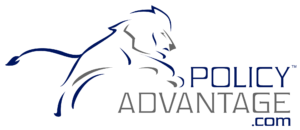Pioneering Healthcare: UCLA Health and Cedars Sinai Transforming Los Angeles through Smart Hospital Excellence
Introduction
In the dynamic landscape of Los Angeles, two healthcare titans, UCLA Health and Cedars Sinai, stand as pillars of innovation, shaping the future of healthcare in unprecedented ways. In 2023, UCLA Health and Cedars Sinai have reaffirmed their prominence by securing the 10th and 35th positions, respectively, in Newsweek’s esteemed global hospital rankings. Beyond their medical expertise, these healthcare leaders distinguish themselves through cutting-edge technology. UCLA Health is recognized as the 26th smart hospital, while Cedars Sinai claims the 12th spot in the realm of technological advancements in healthcare. Beyond their impressive global rankings, both institutions are leading the charge in the realm of smart hospitals, revolutionizing patient care and experience. Let’s delve into the remarkable details that make smart hospitals, particularly at UCLA Health and Cedars Sinai, a game-changer for the city’s healthcare ecosystem.
The Smart Hospital Revolution
Defining Smart Hospitals
Smart hospitals are not just a fusion of brick and mortar; they embody a transformative approach to healthcare. At their core, these institutions seamlessly integrate cutting-edge technologies and data-driven solutions to enhance every facet of patient care, making them not just healthcare providers but digital pioneers.
The Excellence of Smart Hospitals
- Digital Nervous System: Imagine a hospital that functions like a living organism, where every department, from emergency services to outpatient care, is interconnected through a digital nervous system. UCLA Health and Cedars Sinai have embraced this concept, ensuring real-time communication and collaboration among healthcare professionals, resulting in swift and coordinated responses to patient needs.
- Telemedicine Revolution: Smart hospitals recognize that healthcare extends beyond physical boundaries. UCLA Health and Cedars Sinai leverage telemedicine capabilities, allowing patients to access medical consultations and follow-ups remotely. This not only enhances convenience but also ensures continuous care, bridging geographical gaps for a more inclusive healthcare experience.
- Personalized Patient Journey: The brilliance of smart hospitals lies in their ability to turn data into actionable insights. UCLA Health and Cedars Sinai employ advanced analytics to create personalized treatment plans, making healthcare more precise and effective. Patients become active participants in their health journey, with tailored interventions that reflect their unique needs and conditions.
UCLA Health: A Beacon of Innovation
Advanced Health Technologies
UCLA Health stands as a beacon of innovation, integrating state-of-the-art technologies to redefine healthcare delivery. From AI-powered diagnostics to robotics-assisted surgeries, UCLA Health pioneers advancements that set new benchmarks for medical excellence. Patients benefit from streamlined processes, reduced wait times, and the assurance that they are at the forefront of medical innovation.
Cultivating Collaborative Ecosystems
Beyond technology, UCLA Health fosters collaborative ecosystems, bringing together interdisciplinary teams to tackle complex medical challenges. This collaborative spirit ensures that patients receive not just one-dimensional care but a holistic and comprehensive approach that considers all aspects of their well-being.
Cedars Sinai: Elevating Patient Experience
Human-Centric Design
Cedars Sinai is a trailblazer in human-centric design, leveraging technology to enhance the overall patient experience. Smart hospitals are not just about gadgets; they are about creating environments where patients feel heard, supported, and cared for. Cedars Sinai employs technology as a tool for empathy, ensuring that the patient experience remains at the heart of every innovation.
Data-Driven Excellence
Cedars Sinai’s commitment to data-driven excellence is evident in its ability to turn vast amounts of health information into actionable insights. From preventive care strategies to predictive analytics, Cedars Sinai empowers healthcare professionals to make informed decisions, leading to better outcomes and an elevated standard of care.
Conclusion: The Future of Healthcare Revealed
As Los Angeles residents, the proximity to UCLA Health and Cedars Sinai means access to not just healthcare but a futuristic approach to well-being. The smart hospitals of UCLA Health and Cedars Sinai go beyond traditional models, redefining what it means to receive medical care in the 21st century. In embracing the excellence of smart hospitals, we witness a healthcare revolution that prioritizes innovation, personalization, and a commitment to shaping a healthier and brighter future for all.
